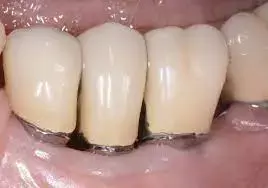- Home
- Medical news & Guidelines
- Anesthesiology
- Cardiology and CTVS
- Critical Care
- Dentistry
- Dermatology
- Diabetes and Endocrinology
- ENT
- Gastroenterology
- Medicine
- Nephrology
- Neurology
- Obstretics-Gynaecology
- Oncology
- Ophthalmology
- Orthopaedics
- Pediatrics-Neonatology
- Psychiatry
- Pulmonology
- Radiology
- Surgery
- Urology
- Laboratory Medicine
- Diet
- Nursing
- Paramedical
- Physiotherapy
- Health news
- Fact Check
- Bone Health Fact Check
- Brain Health Fact Check
- Cancer Related Fact Check
- Child Care Fact Check
- Dental and oral health fact check
- Diabetes and metabolic health fact check
- Diet and Nutrition Fact Check
- Eye and ENT Care Fact Check
- Fitness fact check
- Gut health fact check
- Heart health fact check
- Kidney health fact check
- Medical education fact check
- Men's health fact check
- Respiratory fact check
- Skin and hair care fact check
- Vaccine and Immunization fact check
- Women's health fact check
- AYUSH
- State News
- Andaman and Nicobar Islands
- Andhra Pradesh
- Arunachal Pradesh
- Assam
- Bihar
- Chandigarh
- Chattisgarh
- Dadra and Nagar Haveli
- Daman and Diu
- Delhi
- Goa
- Gujarat
- Haryana
- Himachal Pradesh
- Jammu & Kashmir
- Jharkhand
- Karnataka
- Kerala
- Ladakh
- Lakshadweep
- Madhya Pradesh
- Maharashtra
- Manipur
- Meghalaya
- Mizoram
- Nagaland
- Odisha
- Puducherry
- Punjab
- Rajasthan
- Sikkim
- Tamil Nadu
- Telangana
- Tripura
- Uttar Pradesh
- Uttrakhand
- West Bengal
- Medical Education
- Industry
Removable partial dentures may have benefits for long-term survival outcomes

Removable partial dentures may have benefits for long-term survival outcomes suggests a recent study published in the Journal of Dentistry
The aim of this study was to evaluate whether the use of removable partial dentures (RPDs) has an effect on long-term survival outcomes amongst partially edentulous adults.
Data were extracted from the Third National Health and Nutrition Examination Survey and linked to public-use mortality files for the period up to 2019. Partially edentulous adults with fewer than 20 teeth were included. RPD use and dentition status were determined by clinical examination. The cohort was propensity score weighted to create a sample which was balanced across 27 covariates (sociodemographics, health behaviors and insurance, laboratory markers, and general health status). Survival analysis was undertaken to compute absolute (mortality rate and median survival time) and relative (event time ratio [ETR]) measures of exposure effect.
Results:
- The analyzed cohort included 1246 participants, which equated to 22,557 person-years of follow-up.
- The difference in all-cause mortality rate between RPD wearers and non-wearers was found to be –6.5 (95% CI: –11.6 to –1.4), with the median survival time in RPD wearers being 3.1 years longer (20.3 years versus 17.2 years).
- A 26% increase in survival time was observed in RPD wearers (ETR: 1.26, 95% CI: 1.17 to 1.37) and it was found that, for every 7.5 individuals treated with RPDs, one death would be prevented after 10 years of treatment.
The use of RPDs may have long-term benefits in reducing mortality amongst adults with a non-functional dentition, but further research is needed to validate these findings and assess the factors mediating the relationship. The use of RPDs may have long-term benefits in reducing mortality amongst adults with a non-functional dentition.
Reference:
Nasir Zeeshan Bashir, Eduardo Bernabé. Removable partial dentures and mortality among partially edentulous adults, Journal of Dentistry, Volume 126, 2022, 104304, ISSN 0300-5712, https://doi.org/10.1016/j.jdent.2022.104304.
Keywords:
Nasir Zeeshan Bashir, Eduardo Bernabé, Removable, partial, dentures, mortality, among, partially, edentulous, adults, Journal of Dentistry, Dentures, Epidemiology Mortality, Public health, Survival
Dr. Shravani Dali has completed her BDS from Pravara institute of medical sciences, loni. Following which she extensively worked in the healthcare sector for 2+ years. She has been actively involved in writing blogs in field of health and wellness. Currently she is pursuing her Masters of public health-health administration from Tata institute of social sciences. She can be contacted at editorial@medicaldialogues.in.
Dr Kamal Kant Kohli-MBBS, DTCD- a chest specialist with more than 30 years of practice and a flair for writing clinical articles, Dr Kamal Kant Kohli joined Medical Dialogues as a Chief Editor of Medical News. Besides writing articles, as an editor, he proofreads and verifies all the medical content published on Medical Dialogues including those coming from journals, studies,medical conferences,guidelines etc. Email: drkohli@medicaldialogues.in. Contact no. 011-43720751


